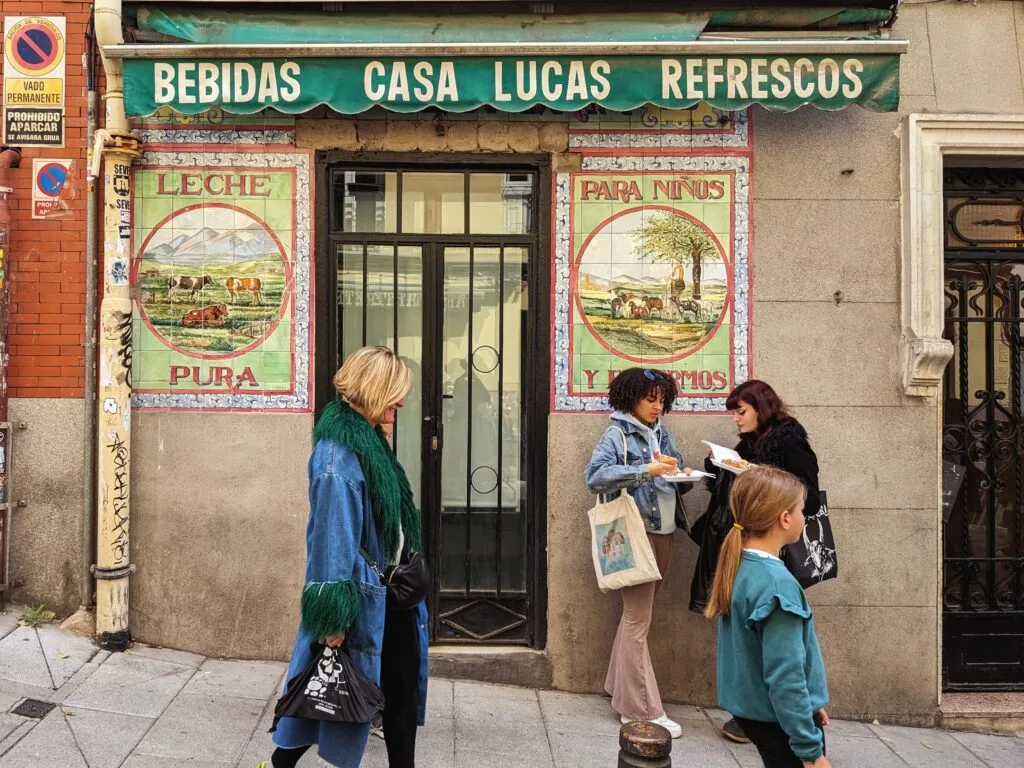For the latest episode of The Making of Madrid podcast, I had the pleasure of speaking with writer Marsha Scarbrough, an experienced expat and correspondent for International Living magazine. Marsha was declared the “La Primera Exiliada” (the first exile) from Trump by El Mundo back in 2017 when she packed her bags and left for Madrid. In the interview, Marsha shared her personal journey highlighting the practical steps, challenges, and joys of finding her feet in the city. So if the recent election result has got you yearning to spend your retirement years abroad, read or listen to Marsha’s story, which offers invaluable insights into the practicalities of making a move to Spain.

The Practicalities: Visas and Paperwork
One of the most common questions Marsha gets from potential retirees is about the visa process. As a US citizen, she applied for the non-lucrative visa, which is a retirement visa for those who do not plan to work in Spain. She emphasized that while the paperwork was extensive and Spanish bureaucracy can be daunting, it is entirely possible to navigate the process without a lawyer. However, she recommended taking a Spanish-speaking friend when dealing with government offices to help make the process as smooth as possible.
The non-lucrative visa has a financial requirement, and Marsha, who lost out in the crisis of 2008, shared how she was still able to meet the minimum threshold, despite having a small pension. After five years and two renewals, she has transitioned to a permanent residency visa, which allows for work.

Taxes and Financial Considerations
One critical aspect of retiring abroad is understanding the tax implications. Marsha explained that Spain taxes you on your worldwide income, including pensions from the US. Thankfully, there’s a tax treaty between the US and Spain that prevents double taxation. You’ll still need to file taxes in both countries, but you can deduct what you pay in US taxes from what you owe in Spain. Marsha advised consulting a tax advisor before making the move to understand what your tax burden might look like, especially since tax rates can vary by region within Spain. She underlined the fact that for those with assets, Madrid is a good option as the city’s wealth tax is set at zero – perhaps because many politicians live in the city!
For more practical information, Marsha recommends Moving to Spain. “Through that portal, which has lots of helpful information, readers can book consultations with immigration lawyers and tax advisors. The first step is always to look at the website of the Spanish consulate assigned to the location of your permanent residence to understand the different types of visas and their requirements.”
Why Madrid?
Marsha was drawn to Madrid for several reasons, many of which align with what makes the city attractive to retirees from the US:
- Safety and Peace of Mind: As someone who has lived in major US cities like Los Angeles and New York, Marsha was impressed by Madrid’s safety. “It’s a big city, but you can walk around at night and feel secure,” she explained. The absence of widespread gun ownership adds to this sense of security.
- Affordable Living: While Marsha acknowledged that rents in Madrid are rising, especially in central areas, she still finds the overall cost of living much more manageable compared to the US. In particular, public transportation is incredibly cheap, with seniors like Marsha able to travel across the city for free due to current policies. This means you can dispense with the added costs of owning a car.
- Cultural Diversity: Marsha was also impressed by Madrid’s multicultural environment, which includes residents from South America, as well as other parts of the world. This diversity is reflected in the city’s cuisine, arts, and cultural events, providing a vibrant and inclusive atmosphere for retirees.

Building a Social Network
A concern for many retirees is how to build a social network in a foreign country. Marsha made a point of getting involved in local activities from the start and highlighted how friendly and curious many Madrileños are about Americans, making it easier for her to integrate into the local culture. She participated in an English immersion program called Pueblo Inglés, where she met many of her Spanish friends. Additionally, she discovered Madrid’s ecstatic dance community, a group that became a big part of her social life.

Is Madrid Right for You?
According to Marsha, Madrid is an ideal place for retirees, especially if you’re someone who enjoys city life with access to nature. The city’s excellent infrastructure, diverse culture, and relatively low cost of living make it a viable option for many US retirees. However, she also noted the importance of understanding the rising rents and navigating the tax situation before making a final decision.
If you’re considering retiring in Madrid, Marsha recommends doing your research, visiting the city for an extended period, and consulting with both an immigration lawyer and a tax advisor to ensure you’re fully prepared. “It’s a lot of paperwork, but it’s worth it,” Marsha said, summing up her experience with a smile.
If you’re moving to Madrid and would like someone to show you the history of the city, then why not book a tour with me, the author of The Making of Madrid. Get in touch to discuss dates and prices. For more info about Marsha, check out her Instagram and Tiktok.





